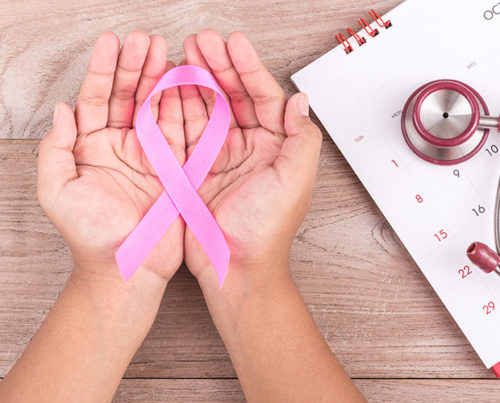Being informed that you have breast cancer is certainly unsettling and we wish you the very best in your recovery. Always keep in mind that your doctor is by your side through and through and you will always have someone to direct your questions and concerns. Your doctor should explain the diagnosis in great detail; however, there may still be some gray area as to all that follows. The following lists 10 important questions to have answered prior to breast cancer treatment:
What type of breast cancer do I have?
 There are three common types of breast cancer:
There are three common types of breast cancer:
Invasive: Cancer has grown into normal tissue.
Non-Invasive: Cancer has not reached the tissue. Rather, it has stayed inside the milk ducts or lobules.
Metastatic: Cancer has spread into other organs. This type of cancer is labeled Stage IV.
How big is the cancer and where exactly is it?
Your doctor should know the current size of the cancer and its potential rate of growth. Size is telling, though, it does not illustrate the entire picture. Small cancers can be fast growing, while large cancers can be slow growing. It just depends on each patient’s case.
What stage of cancer do I have? Can you explain the severity of the stage?
Cancer Research UK describes how stages of cancer are determined. In summary, stages are determined through the TNM system. TNM stands for Tumor, Node, Metastasis. The system stages the size of the cancer, the rate at which the cancer has spread, and whether or not the cancer has spread elsewhere in the body.
What is my prognosis?
Your doctor should inform you of your prognosis, or outlook. He/she will discuss the potential outcomes of the cancer and how it will go about being treated.
Do I have options for cost benefit and insurance coverage for diagnosis and treatment?
You or perhaps a family member can iron out the details regarding health insurance and overall payment for diagnosis and treatment. Your health will be at the forefront of your mind at this point so try your best get the payment aspect straightened out and out of the way as early as possible.
What is the goal for each treatment?
There will hopefully be a plan in place to eliminate the cancer in its entirety. If the cancer happens to be inoperable, a plan will still be in place to try and shrink the cancer. Pain relief throughout treatment(s) will be part of the plan as well.
When do I need to decide on a breast cancer treatment option?
 You’ll likely have some time to consider and review multiple treatment options. Your doctor will go over them with you and share his/her recommendations. Just know the sooner you act the better as you don’t want to give the cancer additional time to spread.
You’ll likely have some time to consider and review multiple treatment options. Your doctor will go over them with you and share his/her recommendations. Just know the sooner you act the better as you don’t want to give the cancer additional time to spread.
Who will oversee my treatment?
The surgeon will be introduced sooner than later. Certainly, you will have the opportunity to speak directly with your assigned surgeon to ask him these questions or other questions that may come to mind.
What do I need to do to prepare for breast cancer treatment?
Your doctor/surgeon will have a list of ways to prep for the surgery. Just be sure you and your medical care team are on the same page as to how the operation will be completed. It is okay to discuss post-treatment plans as well.
What are my chances of survival?
It is up to you whether or not you want to ask this question. Ask about the cancer and which stage of cancer you’ve been diagnosed with first as those answers will give you an idea as to whether or not a question of survival is warranted.
Once your breast cancer treatment is over with and you are free from cancer, look to AiRS Foundation for breast reconstruction surgery. Please visit our website–airsfoundation.org–and our blog to learn more. Or, give us a call at (214) 295-4366. We’d love to speak with you about your reconstruction options!

